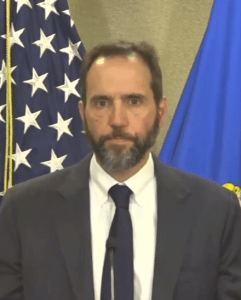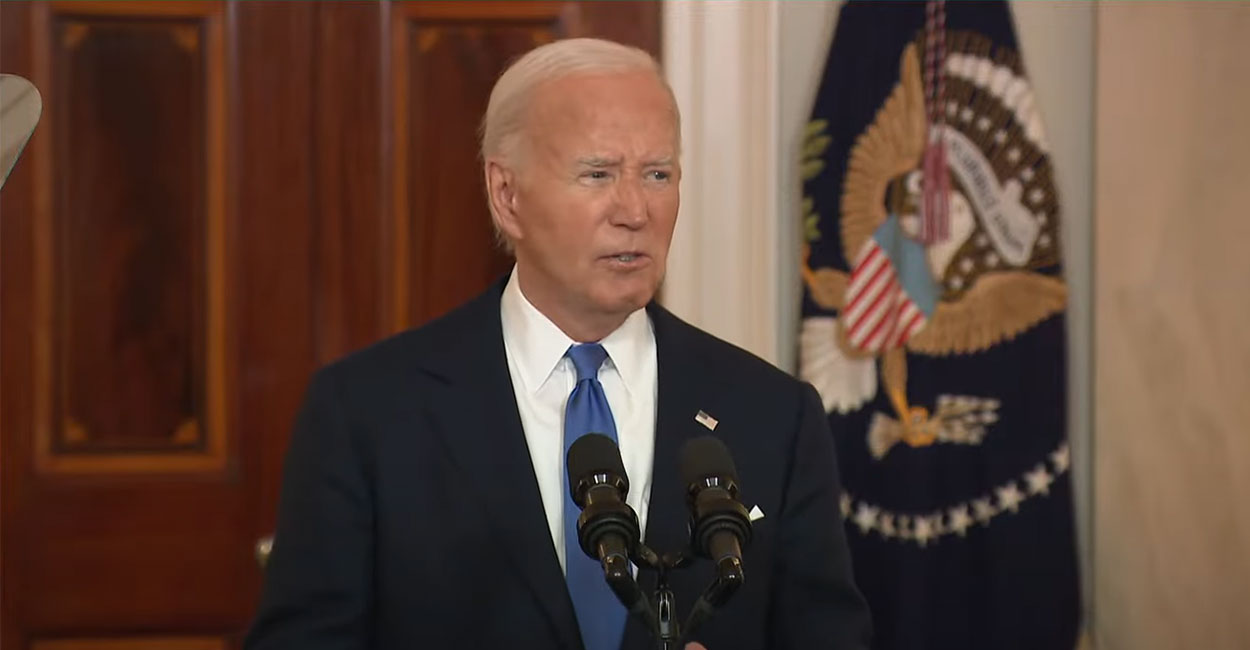The Supreme Court’s decision in Fischer v. United States rejecting the use of obstruction of legal proceedings against January 6th defendants will potentially impact hundreds of cases. For some, it may lead to dismissals or, in the cases with multiple charges, resentencings. One of those cases that will be impacted is the pending prosecution of former president Donald Trump who is facing four charges, including two obstruction counts. However, it is not clear if Special Counsel Jack Smith will yield to the decision or possibly take the dubious path laid out by Justice Ketanji Brown Jackson in her concurrence.
Smith has long tended to push the law to the breaking point to bag defendants. That was the case when his conviction of former Virginia Governor Robert F. McDonnell was unanimously reversed as overextending another law.
It is doubtful that he will go quietly into the night after the Fischer decision. In most cases, a prosecutor would go back and secure a superseding indictment in light of the loss of the obstruction claims. Those claims were central to the narrative of the government under the current indictment.
 That is not Smith’s style. He may decide to push even harder for a trial before the election on the remaining counts. Smith has made the trial before the election an overriding priority throughout his appointment. He also has a very favorable and motivated judge in United States District Judge Tanya Chutkan.
That is not Smith’s style. He may decide to push even harder for a trial before the election on the remaining counts. Smith has made the trial before the election an overriding priority throughout his appointment. He also has a very favorable and motivated judge in United States District Judge Tanya Chutkan.
He could also take a not-so-subtle hint from Jackson in her concurrence. Jackson supported the majority in finding that the obstruction provision, Section 1512(c), was enacted after the Enron case to address the destruction of documents and records.
Section 1512(c)(1) prohibits corruptly obstructing an official proceeding by altering, destroying, mutilating, or concealing a record, document, or other object with the intent to impair the object’s integrity or availability for use in an official proceeding. However, a second provision under subsection (c)(2) allowed for charges that would “otherwise” obstruct, influence, or impede an official proceeding. The Court held that the obstruction cases under Section 1512(c)(2) must be tied to impairing the integrity or availability of evidence.
However, in a single justice concurrence, she added a way that Smith and other prosecutors might still be able to shoehorn January 6th into a Section 1512 offense:
“That official proceeding [Congress’s certification of the Electoral College vote] plainly used certain records, documents, or objects—including, among others, those relating to the electoral votes themselves. See Tr. of Oral Arg. 65–67. And it might well be that Fischer’s conduct, as alleged here, involved the impairment (or the attempted impairment) of the availability or integrity of things used during the January 6 proceeding “in ways other than those specified in (c)(1).” Ante, at 8. If so, then Fischer’s prosecution under §1512(c)(2) can, and should, proceed. That issue remains available for the lower courts to determine on remand.”
Notably, no other justice joined Jackson in the concurrence. However, Smith and Chutkan could reason that it was not expressly rejected and presumably, the three justices in dissent would support the broader reading since they were willing to sign off on the ultimate extension of the obstruction of justice statute. That includes Justice Amy Coney Barrett.
However, that still leaves less than a majority and an application that runs against the grain of the opinion. Just saying that a proceeding involves “certain records” is transparently artificial and forced. Even the submission of an alternative slate of electors is not the destruction of electors certified by the secretaries of state.
The federal law allows for challenges in Congress, which Democrats previously utilized without claims of insurrections or attacks on democracy. J6 Committee Chairman Bennie Thompson (D-Miss.), voted to challenge the certification of the 2004 results of President George W. Bush’s reelection; committee member Jamie Raskin (D-Md.) sought to challenge Trump’s certification in 2016. Both did so under the very law that Trump’s congressional supporters used in 2020. And Pelosi and Senate Judiciary Committee Chairman Dick Durbin (D-Ill.) praised the challenge organized by then-Sen. Barbara Boxer (D-Calif.) in 2004.
Those challenges under the same loose theory could have been viewed as attempting to negate or destroy certifications from the states. It would likely, in my view, result in another reversal. It is, in my view, too clever by half.
That may not concern Smith who may still want to use the obstruction counts to increase the likelihood of convictions on the other counts. In such a circumstance, the overturning of the two obstruction convictions might still leave the conviction for conspiracy to defraud the United States and conspiracy against the rights of citizens.
We will see in the coming weeks, but Smith is likely waiting for the other shoe to drop in the Trump immunity case. That could add additional complications if the case is remanded by the Court for further proceedings. There is little time for a trial before November if the district court must hold hearings on claims that statements or actions were taken by Trump as part of his office.
Chutkan sought to meet Smith’s demand for a trial before the election by converting her court into a virtual rocket docket. The cost of the fast pace was that she created little record on these issues. That might have to be done in a remand and will exhaust additional days on the rapidly shrinking calendar for Smith.
Either way, Monday will throw the final card on the table for Smith and the Court will determine if what is left in his hand. It may not deter Smith. It often seems like both bad gamblers and special counsels tend to double down on weak hands. If history is any measure, Smith is likely to bet the farm on whatever remains.
The problem is that the farm does not belong to him.




